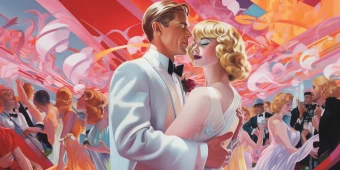by Mary Shelley


Frankenstein: Plot Summary
Table of contents
- Full Book Summary
- Plot Summary by Chapters
- Volume I Summary
- Volume II Summary
- Volume III Summary
- Preface
- Letters 1-4 summary
Full Book Summary
The novel is divided into three volumes, each of which contains several chapters that detail the events leading up to the creation of the monster, as well as the aftermath of its existence.
Volume I Summary
The novel opens with a series of letters written by Robert Walton, a young explorer who is on a journey to the North Pole. He encounters Victor Frankenstein, who is in poor health, and the two strike up a friendship. Victor tells Walton the story of his life, starting with his childhood in Geneva, Switzerland. Victor’s parents, Alphonse and Caroline, raised him and his adopted sister, Elizabeth Lavenza. Victor was interested in science from a young age, and he eventually attended university in Ingolstadt, Germany, where he became obsessed with the idea of creating life.
Victor spends several years working on his experiment, and he eventually succeeds in creating a monster from human body parts. However, upon seeing the monster come to life, Victor is horrified by its appearance and flees his laboratory. The monster, confused and alone, runs away and wanders through the countryside.
Volume II Summary
Victor becomes very ill and is nursed back to health by his friend Henry Clerval. When he returns to Geneva, Victor discovers that his younger brother William has been murdered, and the blame is placed on their servant girl, Justine Moritz. Victor is wracked with guilt over the fact that he created the monster that killed William, but he keeps his secret to himself.
Eventually, Victor decides to travel to the Alps to clear his mind, and he encounters the monster there. The monster tells Victor his story and asks him to create a female companion for him. Victor initially agrees but later changes his mind and destroys the female creature before completing it.
Volume III Summary
The monster becomes enraged by Victor’s refusal to create a companion for him and decides to take revenge. He kills Henry and frames Justine for the murder. Victor is consumed with guilt and despair, and he sets out to destroy the monster. He travels to Scotland and creates a plan to destroy the monster, but the creature is able to elude him.
Finally, the monster confronts Victor and tells him that he will leave him alone if he creates a mate for him. Victor agrees, and the two travel to a remote island to complete the experiment. However, Victor once again changes his mind and destroys the female creature. The monster, in a fit of rage, vows to destroy everything that Victor holds dear.
The novel ends with the deaths of both Victor and the monster. Walton, having heard the entire story from Victor, decides to abandon his own dangerous journey to the North Pole and return home to his family.
Plot Summary by Chapters
Preface
The novel opens with a preface written by the author in which she explains the origins of the story. She describes how the idea for the novel came to her in a dream, and how she and her companions challenged each other to come up with their own horror stories. She also explains that the novel is intended as a warning against the dangers of playing God and the consequences of unchecked scientific ambition.
Letters 1-4 summary
The first section of the novel consists of a series of letters written by Robert Walton, an explorer on a mission to the Arctic. In his letters, Walton describes his journey and his desire to achieve fame and glory. He also relates how he comes across Victor Frankenstein, who is in a desperate state and tells Walton the story of his life.
In the first letter, Walton describes his ambition to explore the North Pole and his loneliness as a result. He encounters Victor Frankenstein, who is weak and ill, and nurses him back to health. In subsequent letters, Walton describes Victor’s story, including his creation of the monster and his subsequent suffering as a result. Victor warns Walton about the dangers of ambition and the pursuit of knowledge at any cost. In the final letter, Walton abandons his quest for the North Pole after encountering the monster and witnessing Victor’s death. The letters serve as a framing device for the novel and provide insight into the themes of ambition, loneliness, and the dangers of unchecked knowledge.

- Instructions Followed To The Letter
- Deadlines Met At Every Stage
- Unique And Plagiarism Free


 The Things They Carried
The Things They Carried
 The Great Gatsby
The Great Gatsby
 The Metamorphosis
The Metamorphosis